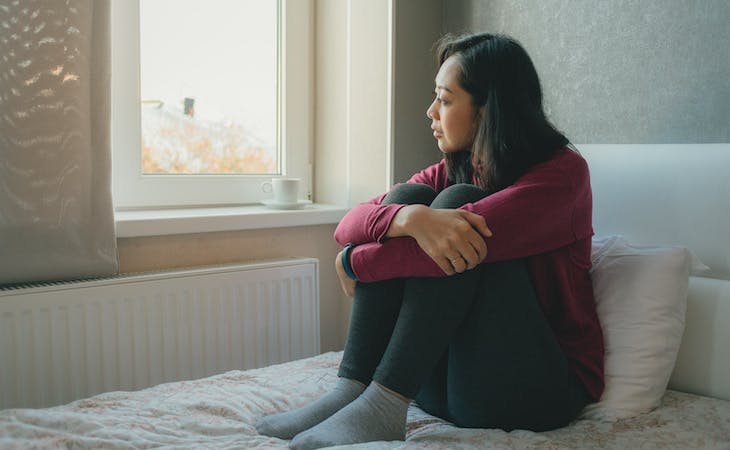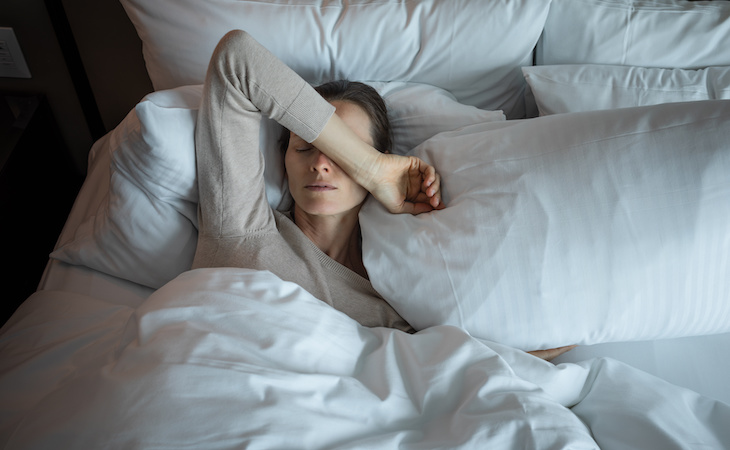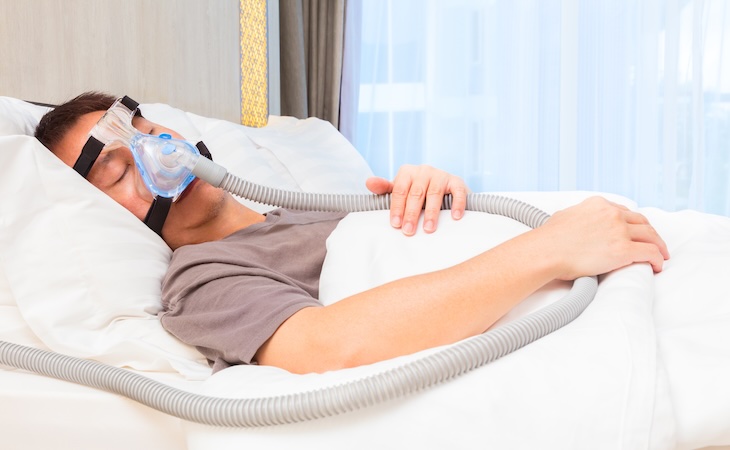Although most of us can fall asleep naturally, a small number of people suffer from a disorder known as somniphobia.
Also referred to as sleep dread, sleep anxiety, hypnophobia, or clinophobia, somniphobia is characterized by severe fear and anxiety around falling asleep. It can lead to a number of health issues and symptoms that are similar to those of stress, such as generalized anxiety disorder, insomnia, and paranoia.
Keep reading to learn what causes somniphobia and how to treat it.
What causes somniphobia?
“People with generalized anxiety are more prone to have sleep anxiety,” says Victoria Wildhorn, sleep expert with Mattress Clarity. “It can also be caused by stress hormones that will release at a rapid rate when you’re worried about something.”
Wildhorn explains that hypothyroidism is common among those with somniphobia. That’s because an underactive thyroid can lead to anxiety and insomnia.
Somniphobia is also common in those with other health problems, such as bipolar disorder, depression, alcohol use disorder, post-traumatic stress disorder (PTSD), and schizophrenia. Having sleep apnea can also cause someone to fear going to sleep and experiencing its symptoms.
Being prone to having nightmares is another reason why someone may fear falling asleep, according to Vanessa Osorio, sleep expert with Sleepopolis. She says about 96% of people who suffer from PTSD have nightmares, and “many of those who have frequent night terrors may avoid sleep in fear of experiencing bad dreams.” (Learn why some people have a fear of sleeping alone.)
How is somniphobia diagnosed?
Of course, we know that not getting the sleep we require to function at our best can be unhealthy for our bodies and minds. That’s why it’s important to treat somniphobia.
Wildhorn recommends consulting with your primary physician or seeking treatment from a mental health care provider.
Osorio concurs. “A mental health professional would be the right person to see,” she says. “Discovering the root of what’s causing the fear of sleep is the first step to properly treat it.”
How is somniphobia treated?
The goal is a good night’s sleep, but the steps toward achieving it involve rooting out the cause of the fear triggering your sleep dread. Treatment will vary based on what’s causing your specific case of somniphobia.
“There are many techniques in therapy that can help alleviate symptoms of anxiety which can greatly improve one’s struggles with the sleep disorder,” Wildhorn explains.
While psychological treatment through anxiety relief techniques can be helpful for individuals with somniphobia, changing some of the factors in your nightly routine can have a positive effect as well, adds Wildhorn.
She recommends you:
- Avoid a lot of liquid, particularly caffeinated beverages or alcohol, before bed.
- Create a peaceful nighttime routine, such as drawing a hot bath, lighting candles, journaling, or reading.
- Go to bed and wake up at the same time each day.
- Sleep with a partner, family member, or friend, if loneliness worries you, to take away the fear of something bad happening or harming you during sleep.
Another highly effective treatment for somniphobia is hypnotism. Studies show treating people who have chronic insomnia accompanied by rumination with hypnosis can have a powerfully positive impact on reducing anxiety and improving sleep.
“Hypnosis is extremely fast and effective for managing anxiety,” says Eli Bliliuos, certified hypnotist in New York City, who specializes in helping clients of his NYC Hypnosis Center overcome anxiety and related problems with sleep. “In hypnosis, suggestions are given to reduce stress, manage anxiety, and prevent catastrophic thoughts related to falling asleep and/or dying.”
During a hypnosis session, you’ll follow the direction of a hypnotist, who’ll use a combination of guided imagery, confusion, deep breathing, and body relaxation techniques, explains Bliliuos. Contrary to popular belief, hypnosis doesn’t involve falling asleep and giving up control—you’re aware and awake the entire time, says Bliliuos.
The bottom line: Solving your somniphobia has everything to do with addressing the underlying reasons for your sleep dread. But simply knowing there are effective ways to treat somniphobia may begin to help relieve some of the worry that causes it.
Narcolepsy is another disorder that can make it harder to get a good night’s sleep. Check out our narcolepsy guide to learn more about what causes this condition and how to treat it.




